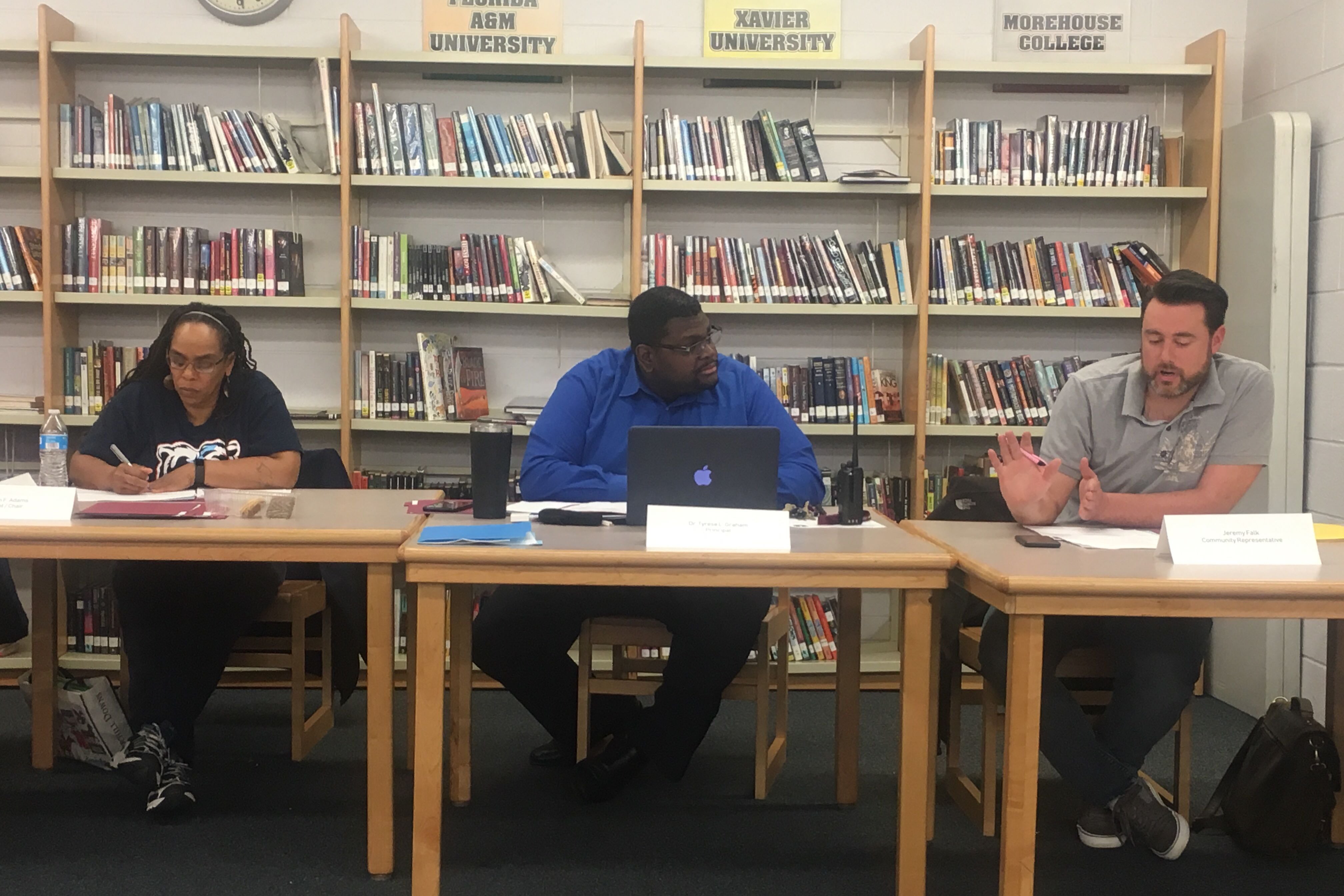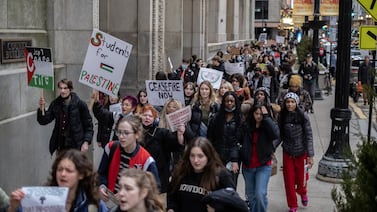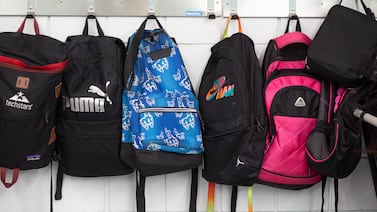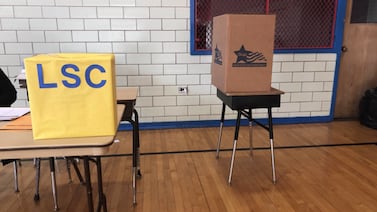Want to help make decisions at your child’s local school?
Each Chicago school has a mini school board, known as a Local School Council (LSC), with power over some hiring and budget decisions. The elected groups have been a fixture of Chicago schools for more than three decades. In recent years, they’ve been thrust into the spotlight, taking on heated debates on whether to keep or remove police from campus.
After high voter turnout in the April election, more than 1,400 LSC seats remain empty at hundreds of schools. With a new school year underway, those seats dedicated for parents and community members will soon be filled in the coming weeks.
Here is more information about LSCs and how you can get involved:
What is a Local School Council?
Local School Councils have been a facet of Chicago school governance since 1989. LSCs have at least 12 seats, which are voted on every two years. This year’s elections have already happened, but there’s still a process to fill empty seats. (See below.)
The councils are traditionally made up of the school’s principal, six parents, two community members, two teachers, one non-teaching staff, and one to three students. This year, for the first time in the district’s history, elementary students in the sixth grade are eligible to serve one-year terms on their school’s LSC.
The councils vote on the annual school budget, approve the school academic plan, and select and evaluate principals.
How can I tell if my child’s school has seats open?
This tool shows the schools with councils and current council members, but doesn’t explicitly show whether a school’s LSC has a vacancy. If fewer than 12 people are listed, that’s a sign there’s an opening. Ask your child’s school to find out.
According to data obtained by Chalkbeat following the LSC elections in April, more than 1,408 empty seats remained across hundreds of Chicago schools. At more than 100 schools, 40% of the seats were unfilled, data shows.
South and West Side schools had the highest number of unfilled seats. Garfield Park, Little Village, New City, Englewood, Roseland, Grand Crossing, and Chatham had the highest overall total number of vacancies across schools within each neighborhood, data shows.
Can I apply for one of these vacancies?
Yes. It’s still possible for people interested in being on an LSC to fill these vacant seats. Interested parents and community members are asked to file nomination forms and participate in an interview or presentation during an LSC meeting. Afterwards, LSC members will vote on whether to appoint a candidate to a vacant seat on the council.
Community members can only serve on a school’s LSC if they live within the campus voting or attendance boundaries. This tool helps outline the boundary for community members on the map.
Where can I find a nomination form?
Nomination forms or applications for vacant seats are available online. Some schools may have a physical copy of the application available for parents, community members, and staff interested in serving.
Interested candidates will be asked to disclose the following: name, current address, addresses over the past five years, phone number, date of birth, race, gender, email address, disclosure of criminal convictions, a statement of economic interests, two forms of identification (one must have a current address), and past service on an LSC.
What training is available to LSC members?
Chicago Public Schools has an LSC toolkit on its website that gives detailed information about responsibilities and procedures around votes and decision-making in Spanish and English. The district also offers nine online training modules council members must take within the first six months of their post, including information about how to hold effective meetings, roles and responsibilities, principal evaluation, internal accounts, and fundraising, as well as how to analyze the budget.
Community groups and other school advocates have often said these trainings aren’t enough to fully empower school councils. Parent groups such as Raise Your Hand also host informational training sessions to support LSC members.
Raise Your Hand parent representatives estimate that the position requires an average time commitment of three hours a month, which includes monthly meetings and reviewing documents.
Mauricio Peña is a reporter for Chalkbeat Chicago, covering K-12 schools. Contact Mauricio at mpena@chalkbeat.org.








